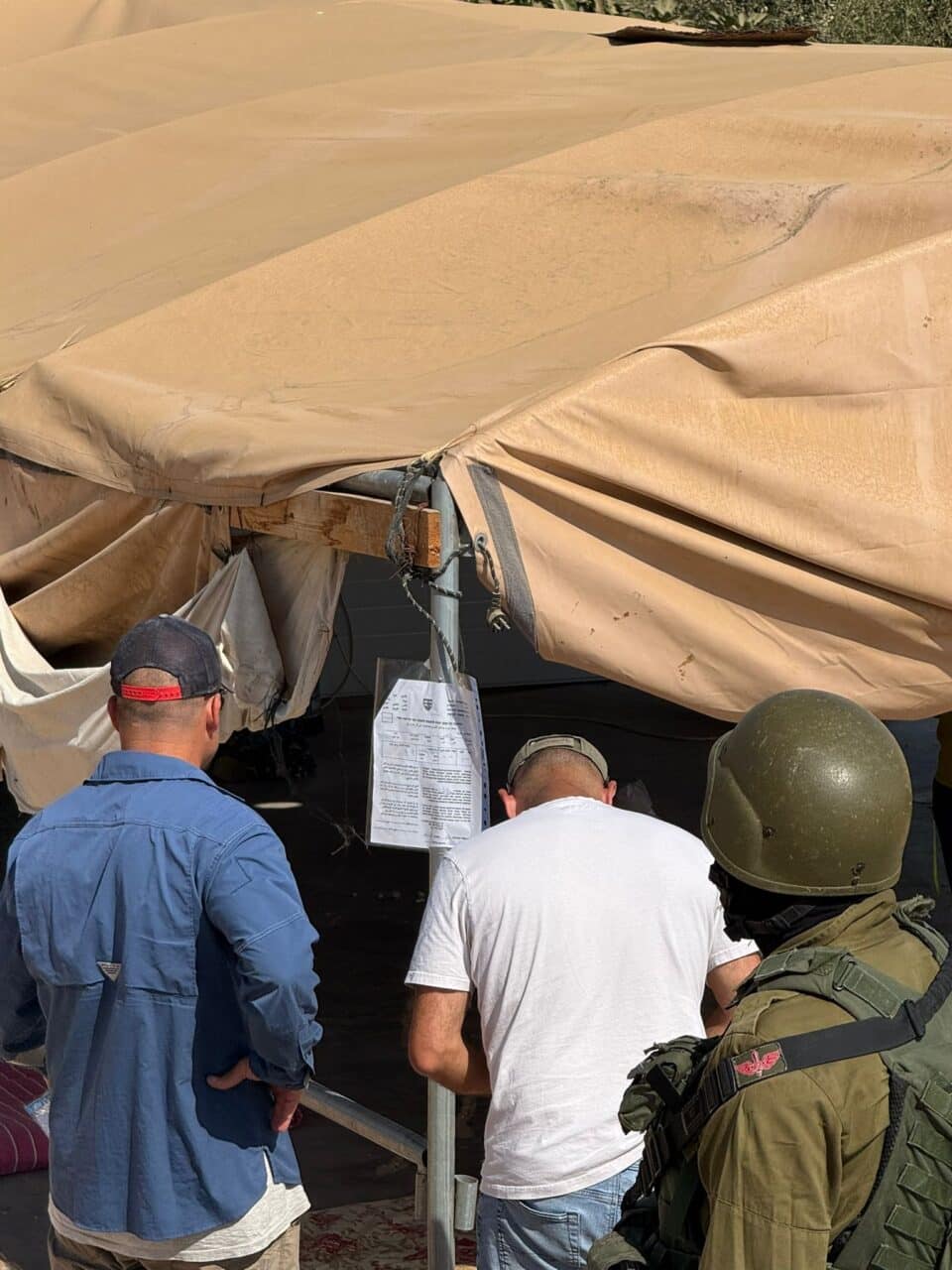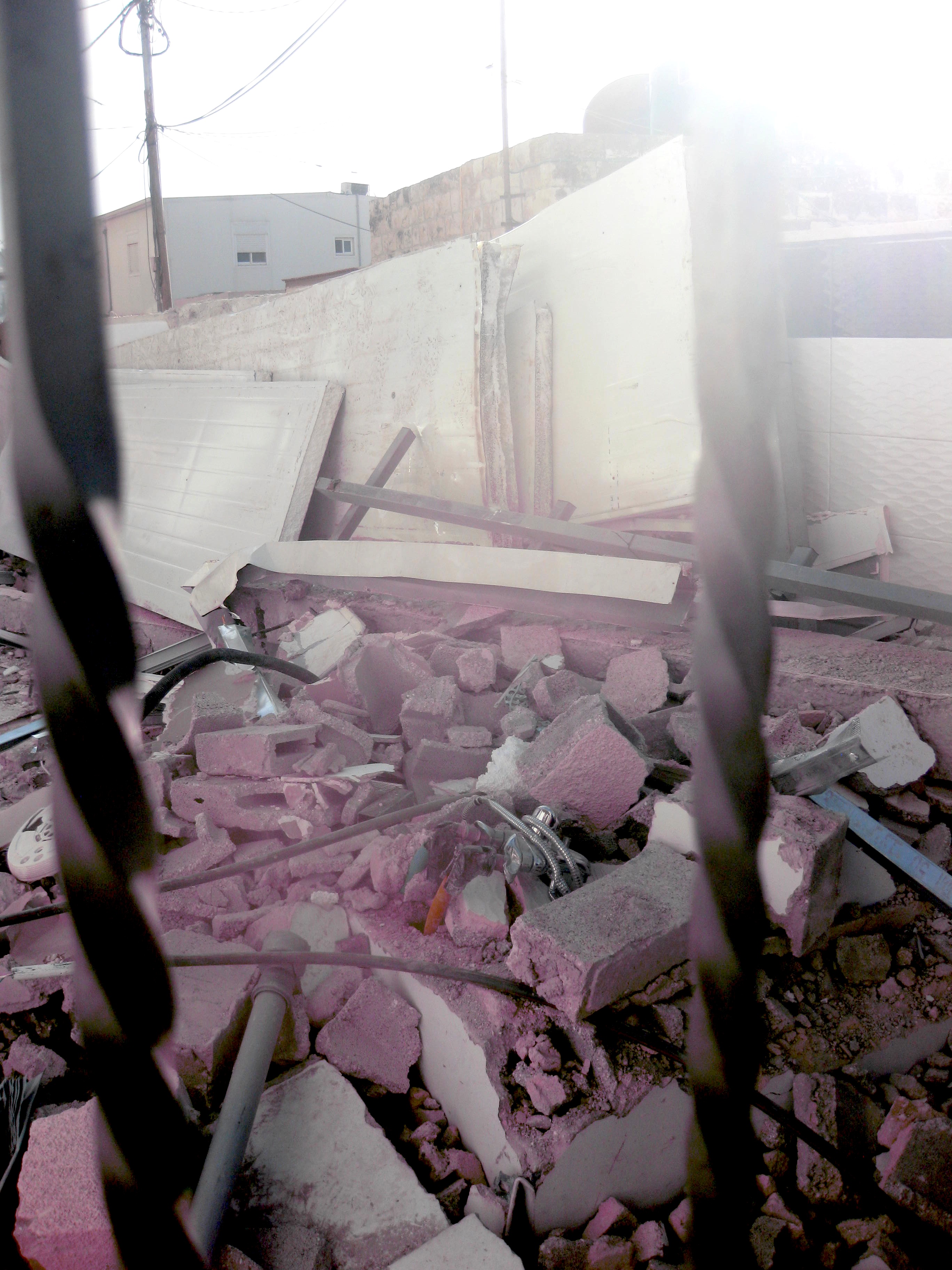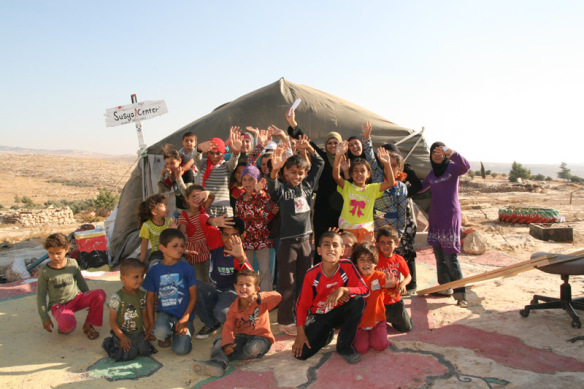Tag: Demolition order
-
Urgent risk of forced displacement: 14 demolition orders in Umm al-Khair, Massafer Yatta
Still in mourning after the murder of activist, father, and beloved community figure Awdeh al-Hathaleen, the residents of Umm al-Khair, Massafer Yatta have this week been served final demolition orders for 11 homes, all belonging to members of the al-Hathaleen family. Handed out by soldiers on on Tuesday 28th October, the army at the same…
-
Silwan Occupied
25th December 2016 | International Solidarity Movement |Huwarra team | occupied Palestine Yusef Sheukhy is one out of many Palestinians in Silwan who has already suffered much from the Israeli presence in occupied East Jerusalem. Five of his children have spent time in Israeli jails; the most recent released on 27 May this year. And on…
-
Call to Action: #SaveSusiya
Susiya Emergency Call To Action Please send the following 2 letters (below). One to EU trade officials (addresses below the letter) and one for Israeli embassies (please make sure to change the name according to location). Protests at your local Israeli embassies (you can find your local embassy athttp://embassies.gov.il/Pages/IsraeliMissionsAroundTheWorld.aspx). LIKE the official #SaveSusiya Facebook page…



